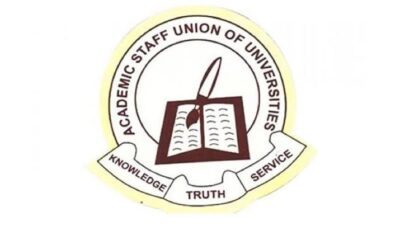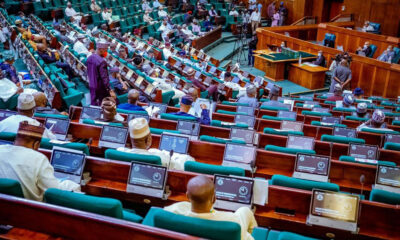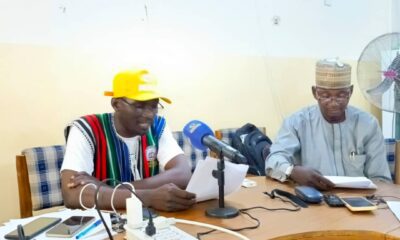Education
School fees hike in Federal varsities sparks outrage, concern
…ASUU warns of potential increase in student dropouts
By Sodiq Adelakun
The recent surge in school fees, particularly in federal universities, has sparked outrage among Nigerians, particularly parents and students.
The Academic Staff Union of Universities (ASUU) has also expressed concern, cautioning that if this trend persists, it could result in a significant number of students dropping out within the next two years.
The exorbitant increase in school fees has become a pressing issue, raising questions about the accessibility of education in Nigeria.
Many parents, already burdened by economic challenges, are finding it increasingly difficult to afford the new fees.
This has led to widespread condemnation and calls for urgent action.
ASUU, representing the interests of university teachers, has joined the chorus of disapproval. Its president, Prof Emmanuel Osodeke, has warned that if the situation remains unaddressed, a staggering 40 to 50 percent of students will be forced to abandon their education within the next two years.
Such a mass exodus would have far-reaching consequences for the country’s educational system and the future prospects of these students. The implications of this crisis extend beyond the immediate financial strain on families.
Education is a fundamental right, and the escalating fees threaten to widen the gap between the privileged few and the majority who struggle to access quality education. This disparity could exacerbate existing social inequalities and hinder the nation’s progress.
Furthermore, the potential dropout rate highlighted by ASUU raises concerns about the long-term impact on the country’s workforce.
Nigeria, with its youthful population, relies heavily on a well-educated and skilled labor force to drive economic growth and development.
If a significant number of students are forced to abandon their studies, the nation risks losing its future leaders, innovators, and professionals.
The university don lamented that the people’s standard of living is at its lowest ebb following the high cost of living as a result of continued downward slope in the value of the naira against the dollar and other foreign currencies, and instead of finding a way to improve the living condition of the people, the university authorities are adding to the people’s pain and misery.
He said: “Today, universities are arbitrarily increasing tuition fees. Is that correct in an environment, where the minimum wage is N30,000 per month, and where they have to pay rent and pay heavily for transportation? And you are enforcing this thing on the students?
“As a result of this, I can assure you that if nothing is done about this heavy fee being introduced all over the country today, in the next two or three years, more than 40 to 50 per cent of the students who are in school will drop out.
“If you say school fees of N300,000, how can the children of somebody who earns N50,000 a month be able to pay such fee?”
A Nigerian education advocate has criticized the government’s approach to funding education while calling for a significant increase in the education budget.
He argued that allocating only 3.8 percent of the overall budget to education in 2022 is insufficient for the development of the sector.
He emphasised that a budget of around 15 percent is necessary to improve education in Nigeria and alleviate the financial burden on parents who are currently struggling to pay expensive fees.
In recent months, several public colleges and universities have raised tuition fees, citing the economic realities of the country. This has led to student protests against the fee hikes. For example, students at the University of Jos protested against a 300 percent increase in their school fees.
They expressed their dissatisfaction with the university’s decision to raise fees, especially considering that a previous agreement had been reached in 2017 to increase fees from N27,000 to N45,000.
The sudden and significant increase to N213,000 for 100 and 200-level students, and N160,000 for 300-level students, was seen as unfair and burdensome.
Similar protests have also occurred at the University of Nigeria Nsukka and the University of Lagos, where arbitrary fee increments were announced by the university authorities.
Meanwhile, there is a growing concern about the lack of adequate funding for education in Nigeria and the impact it has on students and their families. The call for a significant increase in the education budget aims to address these issues and promote the development of the country’s education system.
The University of Nigeria, Nsukka (UNN), has recently faced backlash for increasing school fees for 100-level and 200-level students. Despite protests by students on December 1, 2022, when fees were raised by 100 percent for the 2021/2022 academic session, the university went ahead with the recent increment.
The new fees range from N85,000 to N95,000 for returning students, depending on their course and faculty, compared to the previous fee of N45,000.Following the students’ protest, there was a deduction of N10,000, bringing the fees down to between N74,000 and N75,000 for old students.
However, new students are now required to pay between N114,650 and N120,650. With the latest increment, returning students are expected to pay around N90,750, depending on their faculty and department.
The increase in school fees has raised concerns among parents and guardians, who may find it difficult to afford the new fees. Many believe that this recent increment is linked to the removal of subsidies in education and the introduction of the Students’ Loan Act.
According to those who hold this opinion, the constant increment in school fees by federal universities became more prevalent after the Students’ Loan Act was signed into law by President Tinubu on June 12, 2023.
However, the President of the Academic Staff Union of Universities (ASUU) does not believe that the students’ loan scheme will bring about positive change.
He expressed concerns that the scheme would fail and emphasised the need to examine the lending policy for it to be effective.
Many students, like Prof Osodeke, are skeptical about the effectiveness of the students’ loan scheme due to the high unemployment rate in the country.
They fear that even if they are able to repay the loans after graduation, accessing the loans is a challenging process. Despite these concerns, tertiary institutions remain unfazed and continue to raise school fees, believing that the students’ loans will prevent dropouts.
Education
Kwara Govt warns against illegal charges for Common Entrance exam
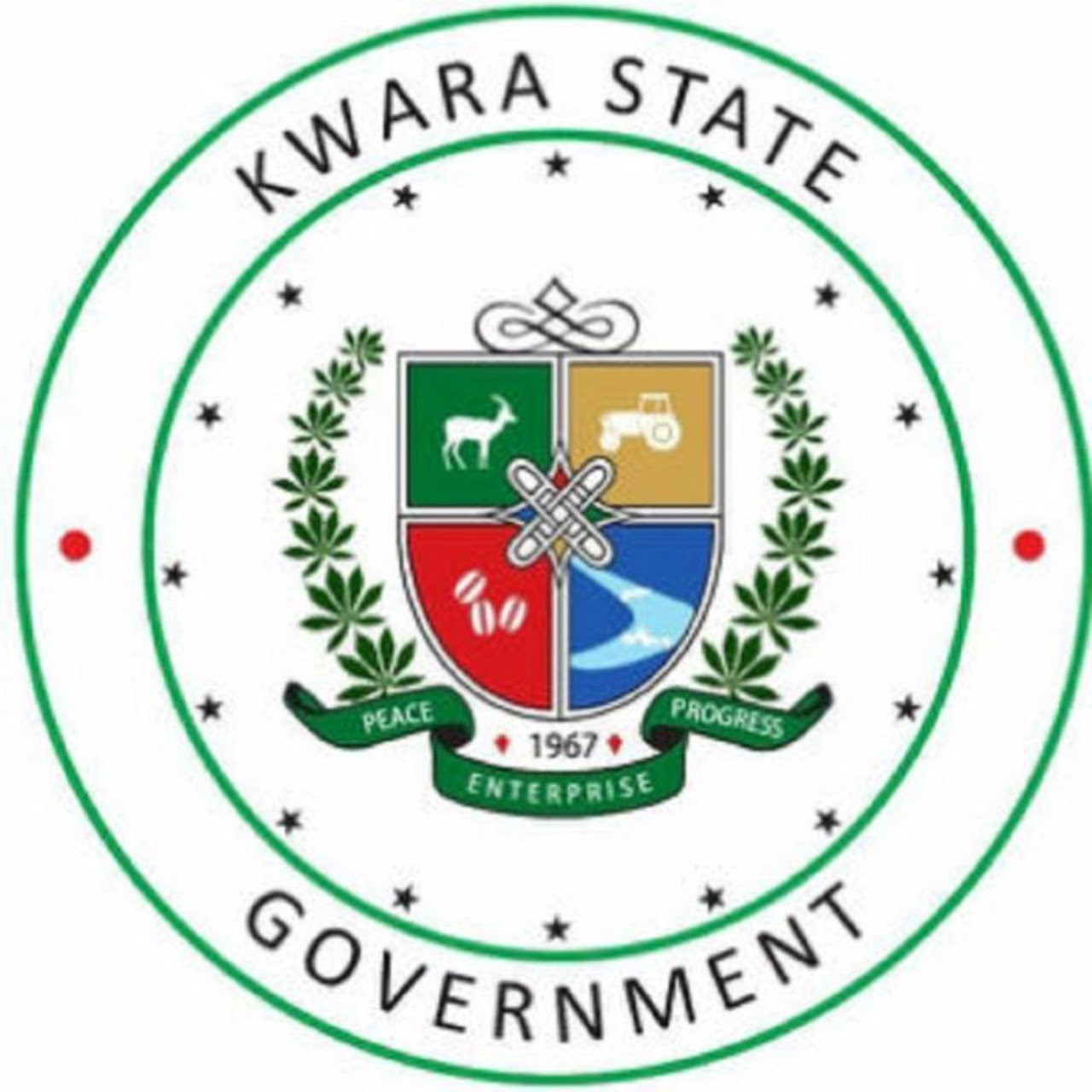

The Kwara State Government has warned principals of Junior Secondary Schools and head teachers of primary schools across the state against illegal charges for the state placement examination (Common Entrance).
Any violator will face the full wrath of the law, the state Commissioner for Education and Human Capital Development, Hajia Sa’adatu Modibbo Kawu, warned on Tuesday in her office in Ilorin.
She emphasized that the common entrance is free and government will not tolerate anyone or group of people extorting money, under any guise, from the pupils because the examination is fully sponsored by the state government.
Hajia Modibbo Kawu urged the principals and head teachers to desist from all acts that could dent the image of the state government.
She also cautioned them against aiding and abetting examination malpractices, stating that the present administration has zero tolerance for examination malpractices.
The commissioner implored the parents and guardians of the pupils to report any principal or head teacher with suspicious acts to her office directly, reiterating that her office is open to everyone.
Education
UNILORIN appoints 40 new Professors
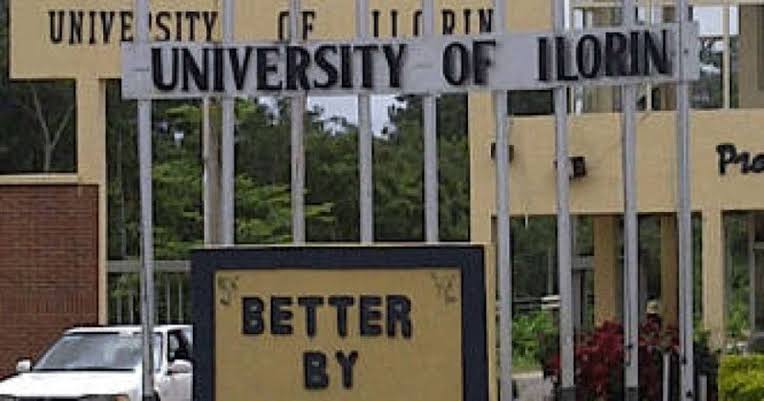

By Saka Laaro, Ilorin
The University of Ilorin has announced the promotion of 40 of its senior academics to the rank of Professor.
The elevation, which was approved by the Minister of Education, Prof. Tahir Mamman, SAN, was sequel to the recommendations of the University Appointment and Promotion Committee.
A statement from the Office of the Registrar said that the 40 distinguished scholars were found to have excelled in the realms of teaching, research and community service and subsequently promoted to the highest rank obtainable in the academia.
The breakdown of the beneficiaries of the promotion exercise shows that 11 of the new Professors are produced by the Faculty of Agriculture and they are Prof. Sidiqat A. Aderinoye-Abdulwahab, Prof. L. L. Adefalu,Prof. F. O. Takim and Prof. A. A. Badmos.
Others are Prof. Foluke E. Sola-Ojo, Prof. W. A. Jimoh, Prof. M. I. Abubakar, Prof. T. H. Aliyu, Prof. R. O. Uddin II, Prof. T. O. Amusa and Prof. Mutiat A. Balogun.
From the Faculty of Arts are Prof. K. M. U. Gbodofu, Prof. Y. A. Abdullahi, Prof. Abosede R. O. Babatunde, Prof. Bolanle E. Arokoyo, and Prof. P. U. Nwosu while the Faculty of Basic Medical Sciences produced Prof. A. S. Alabi, who teaches at the Department of Anatomy.
Two Lecturers from the Faculty of Clinical Sciences were also elevated to the rank of Professor and they are Prof. T. O. Olanrewaju and Prof. O. A. M. Adesiyun.
The Faculty of Communication & Information Science also produced two new Professors through Prof. Tinuke O. Oladele and Prof. Saudat S. Abdulbaqi while those promoted from the Faculty of Education are Prof. O. O. Okoji, Prof. Folakemi O. Adeniyi-Egbeola and Prof. Florence O. Daramola
From the Faculty of Engineering and Technology are Prof. A. T. Ajiboye, Prof. A. Y. Abdulrahman, Prof. M. O. Sumonu, Prof. Rasheedat M. Mahamood and Prof. T. K. Ajiboye.
The Faculty of Law produced one new Professor in the person of Prof. A. C. Onuora-Oguno.
The Faculty of Life Sciences produced four new professors. They are Prof. M. O. Nafiu, Prof. Faoziyat A. Sulaiman, Prof. Risikat Nike Ahmed, and Prof. I. O. Sule.
Those promoted from the Faculty of Management Sciences are Prof. M. A. Ajayi and Prof. Rihanat I. Abdulkadir as the Faculty of Physical Sciences also produced two new professors through Prof. Haleemat I. Adegoke and Prof. O. A. Abidoye.
The promotion of Prof. Monisola A. Tunde of the Department of Geography and Environmental Management was also confirmed while the Faculty of Veterinary Medicine also produced one of the new Professors in the person of Prof. Z. Jaji from the Department of Veterinary Anatomy.
Education
Student Union election turns deadly: One student flees for life, parents killed in tragic attack
In the quiet town of Ekiadolor, the College of Education became a battleground as student politics turned deadly. Odunuga Gbenga, a promising student, found himself thrust into the chaos of campus conflict.
It all began innocently enough when Gbenga was nominated as a contestant for the Student Union presidency. Little did he know that this simple act would plunge him into a nightmare.
During the election, tensions ran high as rival factions clashed violently. What was supposed to be a democratic process spiraled into chaos, with reports of killings, rapes, and riots echoing across the school grounds.
In fear for his life, Gbenga fled the campus, seeking refuge in the familiar embrace of his parents’ home in Edo State. But safety eluded him as darkness fell on that fateful night.
Under the cover of midnight, a group of assailants descended upon Gbenga’s home, shattering the peace of the night. In a desperate bid for survival, Gbenga fought bravely, but the odds were against him.
Tragically, Gbenga’s valiant efforts were in vain. Though he managed to escape, his beloved parents were not as fortunate. The attackers, driven by unknown motives, mercilessly took the lives of Mr. Samuel Odunuga and Mrs. Taiwo Odunuga, leaving a family shattered and a community reeling in shock.
Since that harrowing night in 2023, the search for Gbenga has consumed the hearts and minds of his grieving family. Their plea echoes through the pages of this newspaper, a desperate cry for justice and closure in the face of unspeakable tragedy.
-
Finance4 months ago
Court orders Sen. Victor Umeh to repay N136m bank debt to AMCON
-



 Abuja Update3 months ago
Abuja Update3 months agoUNDP, FG partnership needed to achieve inclusion, equity- Minister
-
Abuja Update2 months ago
Banks drive stock market performance with N147bn gain
-
capital market2 years ago
Rt.briscoe, FBNH, Others halts negative performance of stock market
-
Submission Guidelines4 months ago
CALL FOR SUBMISSIONS: POETRY COLUMN-NND
-



 Health1 month ago
Health1 month agoCapacity training will reduce migration of health workers- NPHCDA
-



 Business4 weeks ago
Business4 weeks agoTingo Group unveils Tingo Electric, Tingo Cola drink at Lagos launch
-
News5 months ago
Oil thieves sponsoring malicious media campaign against Navy – Spokesman



